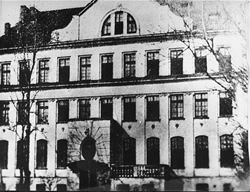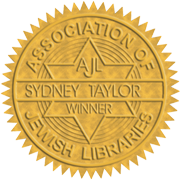Gloria's Blog
Janusz Korczak's Children: From Idea to Final Manuscript
"How hard could it be to write a children's book? Short, simple words – a piece of cake." Not so. It may look easy but it takes time and effort to craft a story – any story. Writing itself is a process. When you start writing it is important to remember that your first draft is just that, a first draft. It is enough to simply spill out the words. Here are the first two paragraphs of Janusz Korczak's Children:
"From his window, Henryk Goldszmidt watched the janitor's son playing with his friends. Their games seemed to be such fun. How he wished he could play too. But Henry's family was wealthy, and his mother wouldn't let him play in the street with the poor, ragged children.
Henryk didn't understand grown-ups. They were supposed to look after children, but so often they treated them badly. How could teachers beat their pupils? Why did adults push children aside on the tramcars?"
But in the beginning the first three paragraphs read very differently. Here they are (You'll soon see why I included the third paragraph too):
"Henryk Goldszmidt was born in Warsaw, Poland on July 22 1878 or 1879. He would never know exactly how old he was because his father forgot to register his birth. Jozef Goldszmidt was a well-known lawyer and the family was wealthy. Their home was beautiful and servants looked after him.
But Henryk was often unhappy. His father's behaviour was sometimes peculiar. Jozef loved his son yet he also had a terrible temper. Once he twisted his ears so hard his mother feared her son would become deaf.
Children from wealthy families were not supposed to run around outside. Henry spent many hours at his bedroom window watching the janitor's son and his ragged friends. He wanted to play with them but the grownups said such bad things about them. They called the children dirty, little criminals. Henryk's mother said he mustn't play with children like them."
What was wrong? Let's look at it again:
"Henryk Goldszmidt was born in Warsaw, Poland on July 22 1878 or 1879.
[B-o-r-i-n-g! So what if he was born? Wasn't everyone?] He would never know exactly how old he was because his father didn't register his birth. [Well, that's kind of interesting but it isn't relevant to the story and it's never mentioned again so why mention it here? After all, I've only got 1,500 words to tell the tale.] Jozef Goldszmidt was a well-known lawyer and the family was wealthy. Their home was beautiful and servants looked after him. [Well, that's nice, but it is just passive description. Nothing has happened and something needs to happen if the reader is going to care about the character. So far, there is nothing here to make the reader care about the character.]
But Henryk was often unhappy. His father's behaviour was sometimes peculiar. Jozef loved his son, yet he also had a terrible temper. Once he twisted his ears so hard his mother feared her son would become deaf. [Mmm, well this is a little more interesting but still the reader has no reason to care about these facts.]
Children from wealthy families were not supposed to run around outside. Henry spent many hours at his bedroom window watching the janitor's son and his ragged friends. He wanted to play with them but the grownups said such bad things about them. They called the children dirty, little criminals. Henryk's mother said he mustn't play with children like them." [Getting better. This could interest a child. Mmm, maybe it would be better to focus in on Henryk and what he thought as he watched those poor kids playing in the street. Yes, scrap the information that he was born and start with Henryk looking out of the window.]
This is what I came up with next. The second draft:
"Henryk Goldszmidt often watched the janitor's son and his dirty, ragged friends from his window. How he wished he could play with them. Their games seemed such fun. But Henryk's mother wouldn't let him play in the street with the poor children." Henryk's didn't understand grownups. They called poor children 'dirty little criminals.' Teachers often beat pupils. He even heard some grownups threaten children. "I'll give you to a wicked old man' or you'll be put in a bag."
"Henryk Goldszmidt often (What does the word 'often' add here? Not much. If we take it out the reader can go directly into Henryk's experience) watched the janitor's son and his dirty, ragged friends from his window. How he wished he could play with them. Their games seemed such fun. But Henryk's mother wouldn't let him play in the street with the poor children." Dirty? Ragged? Those are negative adjectives that his parents probably used. But Henryk was probably just looking at the kids thinking they were having a whale of a time. Perhaps it would be better having him simply dreaming of playing with his friends instead.
Henryk's didn't understand grownups. They called poor children 'dirty little criminals.' Teachers often beat pupils. He even heard some grownups threaten children. "I'll give you to a wicked old man' or you'll be put in a bag."
A later draft:
"Henryk Goldszmidt watched the janitor's son and his friends from his window. Their games seemed such fun. How he wished he could play too. But Henryk's family was wealthy and his mother wouldn't let him play in the street with poor ragged children. [Ah, here we have it, the first paragraph of the final version!]
Now isn't that a more engaging beginning than just telling the reader that Henryk was born?
I hope that gave you a little taste of how a piece of writing evolves.
When you subscribe to the blog, we will send you an e-mail when there are new updates on the site so you wouldn't miss them.







